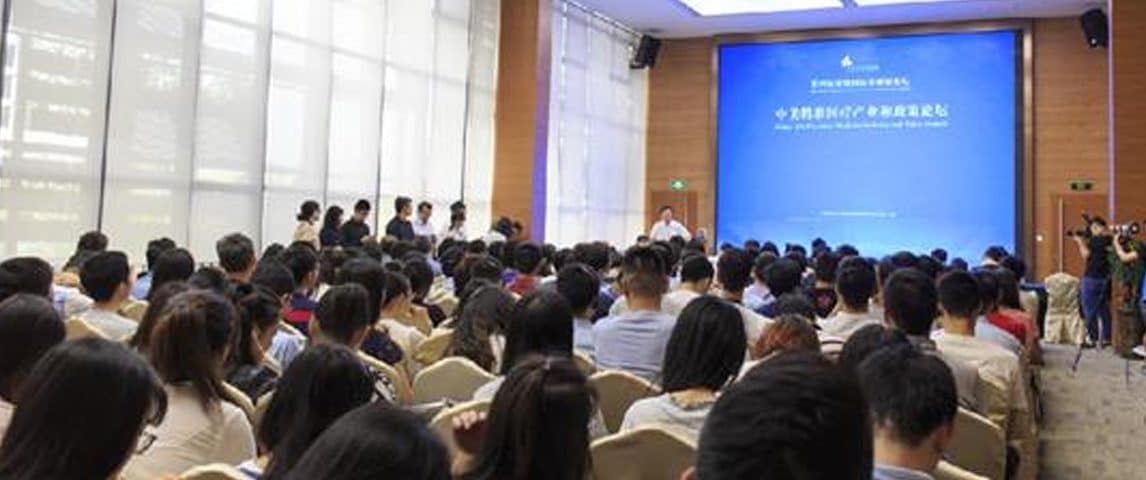
On June 13, 2016, the China-US Precision Medicine Industry and Policy Forum was held in Shenzhen International Low Carbon City. As a pioneer and leader in the clinical transformation of biotherapeutic technology, Beike Biotech was invited to attend the conference. The forum was chaired by Tang Jie, the former deputy mayor of Shenzhen. More than 200 people, including Liao Shuhua, deputy secretary of the Shenzhen Health and Family Planning Commission, Cai Yu, deputy director of the Shenzhen Development and Reform Commission, Hu Xiang, chairman of Beike Biotechnology, and related professionals, attended the forum. As a special guest, Dr. Hu Xiang gave a wonderful speech at the forum and discussed the development and prospects of the precision medicine industry with industry experts.
Dr. Hu Xiang, Chairman of Beike Biotech, gave a speech titled “Precision Medicine Industrial Ecology” and shared the current status of biotechnology and industrial policies as well as the development and transformation of Beike Biotech. Precision medicine is a cutting-edge disease treatment and prevention method that advocates patient-centeredness. Its individualized advantages will gradually revolutionize the current medical model. Industrial policies, regulations and industrial environment are the basis for the development of precision medicine. The current situation can no longer meet the needs of industrial development and has even become an obstacle to industrial development. Dr. Hu Xiang believes that “precision medicine is not only scientific innovation and technological innovation, but more importantly, it requires an industrial environment.”
Dr. Hu Xiang pointed out that the era of precision medicine has arrived. In addition to technological breakthroughs, the removal of ethical obstacles and the innovation of policies and regulations, supporting infrastructure is also needed as an indispensable basic support platform. For precision medicine, it is particularly important to “build” a “highway network” that connects clinical demanders and advanced technology suppliers that can not only meet clinical needs in a timely manner but also take into account production scale. Shenzhen’s innovation environment and government support have changed the growth curve of biotechnology companies, allowing Beike Biotech to transform from a pure R&D enterprise to an open platform enterprise. Beike Biotech has spent ten years building infrastructure in the field of personalized cell therapy, and has built a precise and personalized cell therapy clinical transformation network covering East China, Northwest China, Southwest China, North China, and South China – a national network of comprehensive cell banks + regional cell preparation centers, providing an innovative public technology platform and infrastructure for the clinical transformation of precision medicine technology.
This forum also invited Shi Lizheng, chair professor of pharmacoeconomics at Tulane University and an international expert in internal medicine, and Clifford, former chairman of the American International Health Industry Technology Assessment Association and senior vice chairman of Lewin Group Goodman, Ma Jing, professor at Harvard Medical School and chairman of the China-U.S. Health Summit, Zhao Guoqing, vice president of Guangdong Maternal and Child Health Hospital, A. Mark Fendrick, professor of internal medicine and health management and policy at the University of Michigan, Huang Cheng, executive dean of Harbin Institute of Technology School of Economics and Management, and other experts attended the forum and gave wonderful speeches on precision medicine-related issues such as doctor-patient relationships, big data, innovative medical insurance payment, bioeconomic development and other topics. The national strategies of China and the United States were comprehensively compared, and various topics such as precision medicine industry investment, policy guidance and supervision were discussed in depth.




